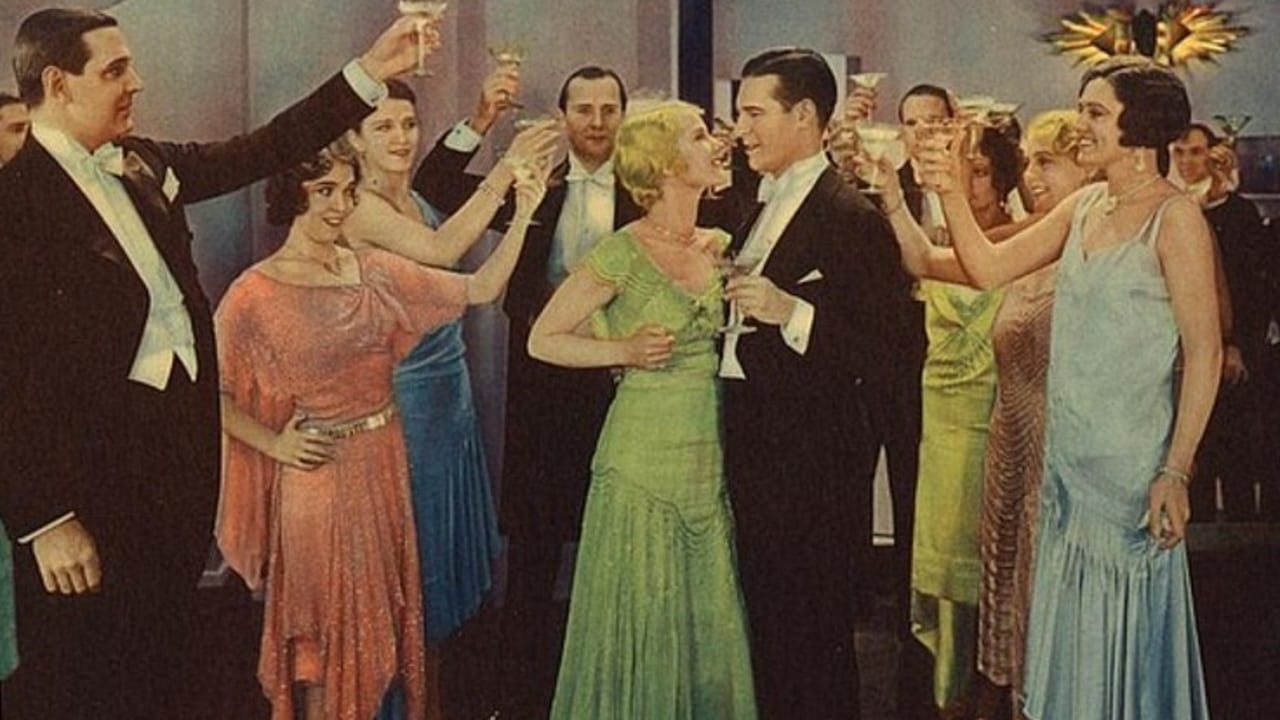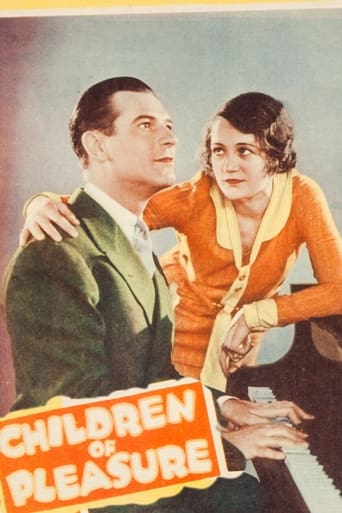

I guess making sure that lead Lawrence Gray had his origins in the Bronx instead of Manhattan's Lower East Side was MGM's way of making sure Irving Berlin did not sue them. He was a most litigious man you know.Gray is a Broadway composer of note who aspires to marry into high soceity. The object of his affection is Judith Wood, but he can't see for beans his assistant Wynne Gibson for once playing a good girl in a movie. I will say the usual ending is not what you will see.Gray was a singer who had a pleasant voice you will discover, but had no real screen presence. He appeared in a few early musicals, but his career ran out of gas. Wood has some real bite in her performance as the spoiled self indulgent society woman.Some nice production numbers of some forgettable songs are in Children Of Pleasure. A pre-Code production of limited appeal.
... View MorePrevious reviewers have hit the high spots in summarizing this 1930s musical from MGM. Lots of criticism has been thrown at the perceived inadequacies of the music and dance aspects of the movie. Yes, when looking at it through today's eyes, it looks dated, simplistic, and fairly unpolished. But the higher standards of the coming years hadn't arrived yet, so let's give this a break! Indeed the dance numbers could have been better rehearsed. If one looks closely, the footwork in the production numbers, while lacking Astaire/Rogers-like precision, is still pretty close. Where the real problems come are in the areas of arm, hand, head, and other body motions. It looks like those aspects of performance were never discussed with the cast, so the resulting dances look sloppy. But this was a step in the process of giving us the higher-level musical that some of us love so very much! Watch this film when you get the chance and enjoy this chapter in the development of an All-American art form!
... View MoreIf you are possibly going to spend 75 minutes or so out of your life watching an early musical from MGM, there's a strong chance you already know what you're in for--this short quickie, compared to a creation from Busby Berkeley at Warner's a few years later, is primitive indeed, but captures a time and place in Hollywood like few other films are able to do.The plot is simple--winsome secretary loves a songwriter who falls for a society dame. The songwriter is zippy Lawrence Gray who smiles through his tears, and composes a song when he wants to express himself in love or out of it. One of his interpreters (and comic relief) is a Sophie Tucker type, a sort of Red Hot Mama attached to her ethnic pianist (at least that's how's he's played). We get some peeks at various musical numbers, some out-of-step minstrels in a theatre and a nutty song and dance in a nightclub--and "you ain't seen nothing" until you've seen the production number for "Dust," one of the hero's hits--with several helpings of actual dust--and later, a catchy little number "The Whole Darned Things For You."The pleasures in this film are to be found in the sense of history it represents, awkward dealings with the sound, none of it prerecorded--even an outdoor encounter with comedian Jack Benny is fascinating, and one wonders if the subway entrance was a location shot or on the MGM lot. "Jiminy Cricket" Cliff Edwards also makes a jokey cameo, and the film zips along at a good pace--but ending as if the producer decided the company had run out of resources and just called "cut" and "print." Children of Pleasure is an archivist's delight!
... View MoreAbsolutely Abysmal Early Talkie Musical that is One of those that is Totally Forgotten and for Good Reason. It is an Example of Hollywood Unmasked for what it can be at its Worse. Even in 1930 this must have been Awful. Considering Neither the Director nor the Stars did Anything Worth a Note After this Bomb.There is a Fat Leading Lady Singing and Dancing as a Wondrous Stage Star and is the Blunt of Ugly and Weight Related Humor. There are Jewish Comedians and Songwriters that are Stereotypical Embarrassing.One Staged Musical Extravaganza with Dozens of Shapely Girls in Rotation and Counter Rotation that Anticipates Busby Berkley is a Highlight, but Mostly the Movie is a Tough Watch because it is So Dated that it Cannot even be Seen as High Camp. It's just One Cringe Inducing Scene After Another. This One has been Relegated to the Dust Bin and Once in a While TCM Brushes it Off for a Screening, but that Only Reinforces its Place in what can Only be Described as a Pathetic Picture.
... View More